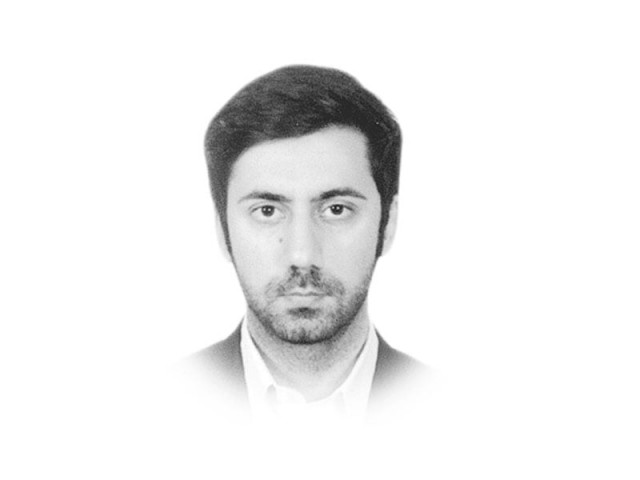Have things changed?
But what is important to know is that this change did not happen over a 100 days of the PTI alone

The writer is a PhD candidate and Director of South Asia Study Group at the University of Sydney. He tweets @HNadim87
But what is important to know is that this change did not happen over a 100 days of the PTI alone. In fact, it changed over the last so many years step by step with contributions from across the political aisle. We do not notice it because we are living and evolving with that change failing to acknowledge that we have come very far from the 90s-era politics, and even for that matter the 2000 era’s.
The debate, therefore, should not be about whether the PTI has changed Pakistan in a 100 days, the debate needs to be about how our political set-up has in steps forced a change through democracy affording Imran Khan the opportunity to focus on his policy goals that may not have been possible a few years ago given the nature of national debate. In larger scheme of affairs, there is a role that many have played in bringing this change.
For good or for worse, General Musharraf ushered in the first disruptive change in Pakistan through liberalising the media. That the same media got Musharraf out and brought democracy back in the country with the Pakistan Peoples Party (PPP) at the helm. The PPP, despite the havoc of corruption it unleashed on Pakistan, pushed through the 18th amendment — a milestone we sometimes fail to truly appreciate in terms of keeping Pakistan gelled together. Where the PPP failed, the Pakistan Muslim League-Nawaz (PML-N) picked up. It is silly to deny the PML-N’s contribution to Pakistan. Infrastructure, energy, the China-Pakistan Economic Corridor (CPEC), the PML-N delivered on its promises, at least some portions of it, but of course at a big economic price. If you notice closely, where the PML-N failed, the PTI has picked up which is the pursuit for reforms — the existential need of the time.
For good or for worse, this is how democracy works. Our issues never cease, but they evolve. The 2008 election was about democracy and democracy alone. The 2013 was about energy crisis and terrorism, and the 2018 was about corruption, accountability and reforms. With every election, our debate is evolving, our issues changing and we are moving towards a more democratic and accountable nation. If Benazir Bhutto led a crusade against dictatorship and brought democracy back to Pakistan, it is Imran Khan that seems to be refining and enabling it in its truest sense. Even Nawaz Sharif, despite his past or personal motives, has forced the military to act cautiously in its engagement with the new government. Let’s not deny that the current civil-military stability is less to do with the military’s love for Imran Khan, and more to do with its nervousness over the ‘other’ possibilities. A little attention to detail can help us forecast the future of this government and those that are to come in terms of the civil-military engagement.
You see, change is never a solo play. The Bhuttos, the Sharifs and now Imran Khan — despite their flaws — are all part of this democratic project. Whatever their intentions may be, the beauty about democracy is that in this play the structure changes the agency as much as the agency tries to manipulate the structure. Having this holistic and somewhat ‘half glass full’ lens allows us to appreciate the fact that change occurs over a span of generations that may not appear right away.
This is important to bring our attention to because of the many things that polarises us today including religious, ethnic and political inclinations, the society is crippling between those that have lost faith and those that are optimistic about the future. Looking at the PTI’s 100 days as a historical continuation of the many changes that have occurred in the previous governments helps us develop an understanding and tolerance to see things and the future the way it should be seen; positively!
Published in The Express Tribune, December 11th, 2018.
Like Opinion & Editorial on Facebook, follow @ETOpEd on Twitter to receive all updates on all our daily pieces.















COMMENTS
Comments are moderated and generally will be posted if they are on-topic and not abusive.
For more information, please see our Comments FAQ